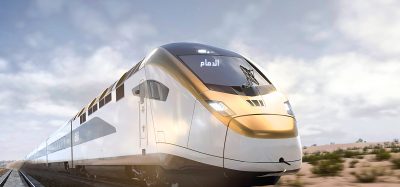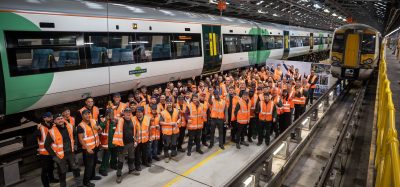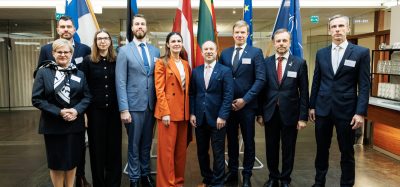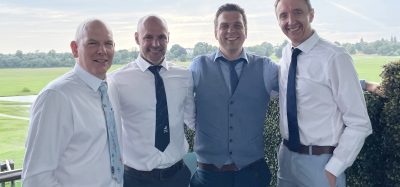Connected by NS – the future is accessible
Posted: 6 February 2007 | | No comments yet
Netherlands Railways (NS) has a strong ambition – to provide seamless travel at any time, without giving it a second thought. The company wants to provide attractive packages, not only for train journeys, but combining various modes of transport: bicycle, car, bus, tram, metro and airplane. Customers will get new, personalised services and the essence of our Vision for 2020 is that travelling time is one’s own time.
A vision for 2020
Can dreams become reality? NS has an ambition to provide first-class services. They want to provide childcare and fitness centres at stations and to provide an attractive environment for journey transfers where passengers can work, meet and go shopping. They want to have a fast train between each city of the Randstad conurbation that departs six times per hour. All of this is a dream, but all of which they hope to be a reality in 2020.
The train journey is an important connecting element in a passenger’s pattern of life. We often still talk in terms of punctuality, bits and bytes, and capacity. Our vision, however, focuses on our customers and their needs. NS is developing into a service provider, heart and soul.
Our vision is a point on the horizon. It guides us towards a direction for our objective of ensuring that The Netherlands remain accessible. If we are to believe the Dutch White Paper on Transport, the rail network will be complete in 2012. Looking at developments in social geography and area planning, for example, NS draws very different conclusions with broader ambitions. The Vision for 2020 was produced using workshops involving NS staff from various business units building on customer research. Experts from outside the company have contributed, as have a number of trend-watchers.
The merging of transport systems
In 2020, it will no longer be a question of taking either the car or the train. It will be a question of which part of the journey you do by car and which part by train, and how you combine the train with other means of transport such as a bicycle or the bus, tram or metro. These transport systems will be merging and we think this is the only way in which The Netherlands can remain accessible in the future. Roads alone cannot provide a solution for accessibility problems. Nor can NS alone offer the way out. We believe that getting the various modalities to blend seamlessly will be the basic service provided by the company in 2020.
Firstly, NS wants to create hubs or transfer points, for example along motorways. We wish to see the first of these within five years. We will soon be carrying out a trial at Veenendaal. The train must be available wherever people are in motion, or wish to move. According to NS, The Netherlands will be developing over the coming years from a densely populated country into one sparsely populated city. This will produce a ‘Greater Randstad’ conurbation with offshoots to Alkmaar, Zwolle and Brabant.
To take a real step forward, NS believes that a new Intercity system is required. This will allow passengers to travel to the cities within the greater Randstad conurbation six times an hour. The journey will take no more than 30 to 40 minutes and this Intercity system will also provide points of transfer to the main road network. Car drivers and train passengers will be kept informed about traffic jams pro-actively, for example via their mobile phones, telling them that it will take 30 minutes to get to the centre of Amsterdam by car, but only 15 by train. This will allow them to make an informed choice and switch from one means of transport to another, if necessary.
NS is also making the case for more sensible area planning. This will allow travelling against the rush-hour flow to be encouraged, along with the establishment of more companies and housing at stations.
Handing travelling time back
Stations are a major factor in the ambitions of NS. They are going to become multifunctional places to travel and stay, offering various activities including shopping, working and housing. Stations will become the meeting place for passengers to rendezvous with friends or have business relations. Fitness centres, restaurants and theatres will be built at major stations and good parking facilities will make it easy to switch from car to train.
The train environment allows passengers to do whatever they want – listen to music, reading or even holding a meeting. Trains will also soon provide better information and more entertainment. At the same time, we are seeing an increase in demand for peace and quiet, particularly among business travellers. New ‘quiet zones’ will meet this demand. We aim to turn the waiting into a more agreeable time – to hand the travelling time back to our customers.
Indicating the constraints
NS has high aspirations, with a price tag to match. Calculations by NS show that realising the Vision for 2020 will cost approximately €8 billion. That includes reservations already made within the Long-term Transport Plan. NS is not afraid that the financial issues will cloud the discussion about the vision. It makes sense to indicate the constraints. Society at large has to make a conscious decision to wait for this.
With our vision for the future, NS will start discussions with politicians, consumer organisations and of course the passengers themselves. We do not have a monopoly on bright ideas. We are interested to find out to what extent our customers, politicians and companies see how they could fit in with our ambitions and work with us to achieve them.
Bert Meerstadt
Bert Meerstadt joined NS in October 2001 as Chief Commercial Officer in the Executive Board. Before joining NS, Meerstadt worked in London for the international Marketing and Communications Company, Young & Rubicam. He was in charge of the divisions Europe, Middle-East and Africa. After graduating as architect at the Technical University of Delft, Meerstadt finished his Masters degree at the European Business School INSEAD in Fontainebleau. In 1987 he joined McKinsey & Company. In 1992 he was co-founder of the consulting agency Consult Marketing and Brand Strategies. This agency became part of Young & Rubicam in 1995, with Meerstadt as chairman of the Dutch Young & Rubicam Group.
NedRailways – success in the UK rail sector
Anton Valk, CEO, NedRailways
Set up in 2001, NedRailways is a wholly owned subsidiary of the Dutch rail company Nederlandse Spoorwegen (NS). The mission of NedRailways from the outset has been to acquire and operate European public transport concessions while differentiating itself from competitors through taking a longer term, strategic view of the markets in which it operates.
NedRailways is one of the few success stories of the privatised UK rail sector – and we currently run two franchises, Merseyrail and Northern Rail, in an equal partnership with Serco.
To continue our growing success, NedRailways is currently down to the final two bidders to operate the new West Midlands rail franchise. The Serco-NedRailways joint-venture is seen by some as the perfect blend between contract management and railways.
We believe that NedRailways brings a genuine commitment to partnership which respects the social and integrated nature of the services they provide. Transparency, openness in communications and cooperation with staff, passengers, transport authorities and local stakeholders are all the defining features of the Dutch approach to business. NedRailways brings these values to the companies we operate and we can be trusted to deliver on our commitments.
What does the future hold for NS? We have seen the European markets for public transport contracts become increasingly competitive with more detailed contract specifications and little room for differentiation. In addition, Governments throughout Europe are becoming more and more professional in letting these contracts. NedRailways’ presence in the UK market as bidder and operator for the past six years has given us invaluable experience in the skills required to enter these competitions and win new business. Decisions about our expansion will be based on this experience and our analysis of the opportunities on offer. We are already exploring new markets but will only enter them on a selective basis if the conditions are right.
About the author
In 1999, Anton Valk became Board Member of NedTrain, the rolling stock and maintenance company of NS. Since January 2001, he is responsible for international expansion as Chief Executive of NedRailways. He has more than 20 years experience in management with a particular focus on marketing, sales and business development. As Senior Vice President of Marketing & Sales of the international telecommunication division of KPN, Dutch Telecom, his main task was to formate and manage overseas offices. Mr. Valk has an engineering degree from Delft University of Technology and an Executive MBA from Nijenrode University.
OUT NOW: The Definitive Guide to Rail’s Digital Future
The rail industry is undergoing a digital revolution, and you need to be ready. We have released our latest market report, “Track Insight: Digitalisation.”
This is not just another report; it’s your comprehensive guide to understanding and leveraging the profound technological shifts reshaping our industry. We move beyond the buzzwords to show you the tangible realities of AI, IoT, and advanced data analytics in rail.
Discover how to:
- Optimise operations and maintenance with real-time insights.
- Enhance passenger services through seamless, high-speed connectivity.
- Leverage technologies like LEO satellites to improve safety and efficiency.
Featuring expert analysis from leaders at Nomad Digital, Lucchini RS, Bentley Systems and more, this is a must-read for any rail professional.







